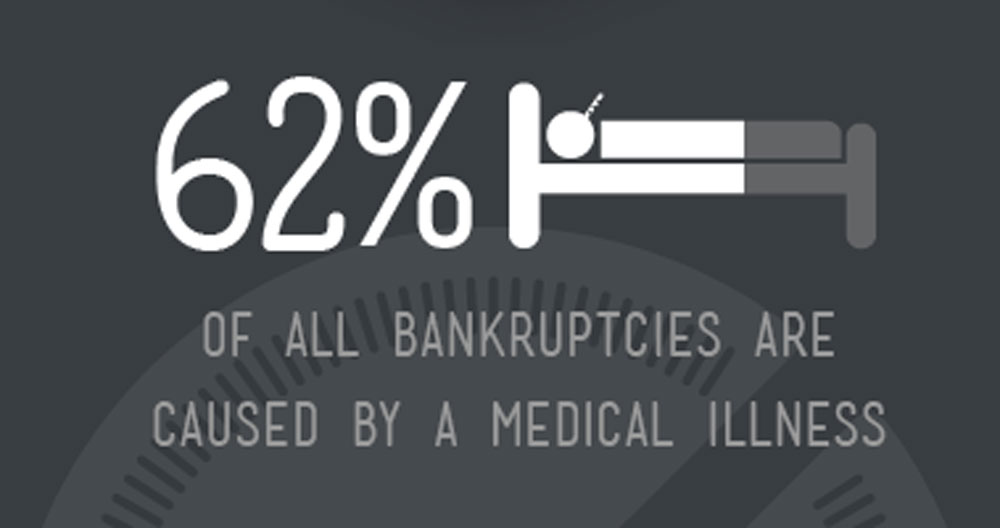
September 13, 2019; ProPublica and Washington Post/Kaiser Health News
In July, NPQ covered an emerging story brought to light by investigative journalists at ProPublica. A Memphis nonprofit hospital, Methodist Le Bonheur Healthcare, had brought over 8,000 lawsuits against patients, including its own workers, for unpaid medical debt over a five-year period. NPQ also reported on a National Public Radio story calling out Mary Washington Healthcare, a Virginia hospital with the distinction of suing more patients for unpaid medical debt than any other hospital in the state.
These stories, which continued throughout the summer, have been having an impact, and ProPublica hopes to keep the pressure on.
Following ProPublica’s reporting on Methodist Le Bonheur, the health system immediately suspended legal actions to collect bad debt and set about reviewing its policies. The result, according to ProPublica, was threefold: the health system raised workers’ wages, expanded financial assistance programs, and agreed to not sue those with the lowest incomes. Mary Washington has suspended its practice of suing patients and said that it will seek to eliminate the practice of garnishing wages.
Now, the spotlight has turned to the University of Virginia (UVA) Health System, the state’s flagship health system. In partnership with Kaiser Health News (KHN), the Washington Post reported September 9th on UVA’s practice of aggressively pursuing low- and moderate-income patients with lawsuits, property liens, and wage garnishments.
Reporters Jay Hancock and Elizabeth Lucas from KHN tell the story of the dissolution of Heather Waldron and John Hawley’s marriage as their finances spiraled downhill following Waldron’s gastrointestinal surgery. UVA put a lien on the couple’s home to recoup a $164,000 bill. As debt piled up, the couple fell behind on their mortgage, so their house is being foreclosed. Anything left after the mortgage is paid off will go to UVA, while Waldron, an insurance agent and former nurse, is applying for food stamps.
Hancock and Lucas found that UVA, a public institution, “stands out for the scope of its collection efforts and how persistently it goes after payment, pursuing poor as well as middle-class patients for almost all they’re worth.” Over six years, the hospital has sued 36,000 patients, with debts ranging from $13.91 to $1 million.
Sign up for our free newsletters
Subscribe to NPQ's newsletters to have our top stories delivered directly to your inbox.
By signing up, you agree to our privacy policy and terms of use, and to receive messages from NPQ and our partners.
On September 13th, Hancock and Lucas report the hospital announced that it will increase its financial assistance for low-income patients, give bigger discounts to uninsured patients, and reduce legal efforts to collect outstanding debts.
Under UVA Health’s new policy, families with incomes up to 400 percent of the poverty level ($103,000 for a family of four) will now be eligible for financial aid, while the previous threshold was about half that. Also, families will be able to access financial assistance if their assets, beyond the value of their house and car, don’t exceed $50,000. The previous threshold was $4,000, with hospital collections often decimating the little savings a family had managed to accumulate for retirement or college.
The hospital has also committed to lower bills for uninsured patients, increasing the standard discount off the “chargemaster” price from 20 percent to 40 percent. The chargemaster is the hospital’s “list price,” but third-party payers (i.e., Medicare, Medicaid, or private insurance) negotiate prices far below that. In fact, according to the Washington Post/KHN story, the average payment to UVA Health System is 70 percent less than the list price. That leaves uninsured patients still footing a bill that far exceeds the average payment for insurers.
Sara Rosenbaum, a health policy professor at George Washington University, tells Hancock and Lucas that the discount should be far greater than 40 percent. She recommends the uninsured be billed at the Medicare rate, which can be 75 percent off the hospital’s list price, according to reporters. “Even a 40 percent write-off of charges remains a brutal exposure” for the uninsured, Rosenbaum says. “How could they possibly remain tied to their chargemaster and keep a straight face?”
UVA Health System, rated Number 1 in Virginia by US News and World Report, earned $554 million over the six years ending June 2018; the hospital holds investments worth $1 billion, and the CEO earns $750,000 yearly, with additional benefits adding up to close to $1 million.
As investigative journalists expose the collection practices of nonprofit and public hospitals, the negative publicity is forcing them to change their policies. But, as ProPublica notes, the pressure needs to continue. The investigative news site asks readers who have been sued by nonprofit hospitals to contact a reporter by answering a few questions online at their website.—Karen Kahn













